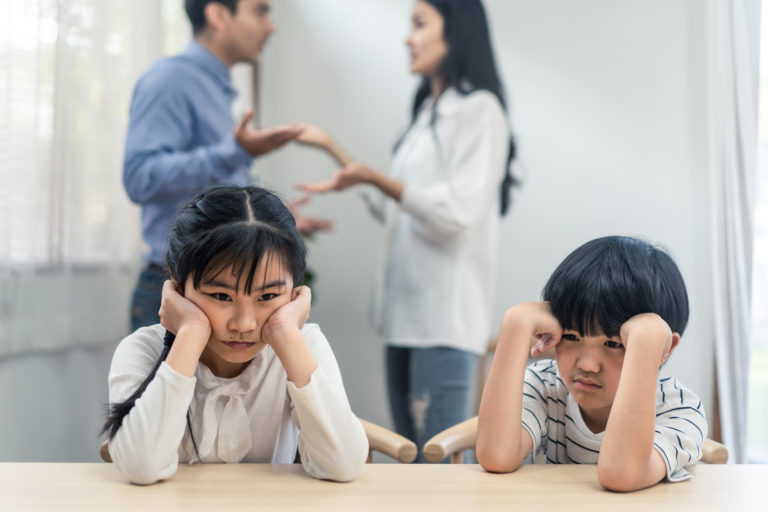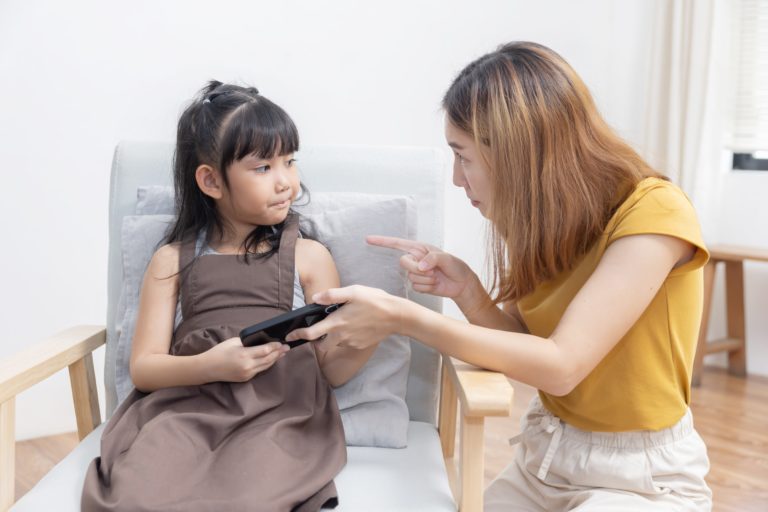Month: March 2023
Hong Kong Volunteer Award 2022 — Caring School
- Post author By system
- Post date 08/03/2023
- No Comments on Hong Kong Volunteer Award 2022 — Caring School
Hong Kong Volunteer Award 2022 — Caring School
2022 Hong Kong Awards for Environmental Excellence - Best Green Education Initiative Award


Full resumption of lessons. What should we do if children keep crying?
- Post author By system
- Post date 01/03/2023

Parenting Tips
March 2023

Source: Registered Clinical Psychologist, Yiu Fong Lee
Faced with the full resumption of classes, parents may face some very troubling issues. For example, children may cry during school and not want to be separated from their parents, or they may open their eyes the next morning and say, “Mum, I don’t want to go to school.” Some children may also have nightmares at night. What should we do when a child is afraid of going to school or does not want to be separated from his or her parents?
If a child really does not want to go to school, parents can ask him, “What are your reasons for not wanting to go to school? Get to know him. The reason may be that he is afraid of being separated from his parents, that he feels uncomfortable in an unfamiliar environment, or that he is afraid of what his teachers and classmates will be like. What should we do? Here are a few ways to help.
Firstly, read some parent-child picture books with your child, in which there are different school scenarios, to help your child pay attention to what school is actually like in advance. We can also use some dolls to help children learn how to play the role of the child and what he can do to calm his emotions when he is worried about going to school. What would he do to help calm his emotions? For example, the doll may say to himself, “I’m going to take a breath and calm myself,” or the doll may say to himself, “I’ll see my mommy and daddy soon tonight”, so that he can calm himself down for a while.

Secondly, we can help your child get used to the school environment in advance so that he knows what it is like. We may allow him to get to know his form teacher and other teachers or to see what the school and classroom environment are like, so that he can be prepared.
Thirdly, we should avoid blaming the child and develop empathy for him. When a child may be crying or reluctant to go to school, do not say to him, “You are so ugly,” “You are not a baby anymore,” or “You are a big girl or a big boy.” These words make the children even more frightened. We can learn to tell our children, “Yes, mummy and daddy know you are scared.” It is normal for you to be scared because you have to learn to separate from your mom and dad or because you don’t know what will happen at school. Mummy and Daddy, on the other hand, guarantee that we will be waiting for you at home by tonight. Why don’t you come back and tell us what you saw, heard, and learned at school? We would love to hear more.
Fourthly, we can give our children a period of adjustment time. For example, parents can accompany their child to school and see if the school adjustment week is OK. For example, the parent may stay in the classroom with the child for half an hour, and then gradually spend less and less time in the classroom, maybe 15 minutes, or tell the children, “I’m going out to the bathroom now; I’ll be back,” or even leave the classroom altogether and observe the children outside, giving them a sense of safety.

At the same time, the child will gradually adapt to the lives of the other children, teachers, and school, which is a new life. I hope that the above methods will help parents build up this sense of security gradually and help children cope with their worries and anxieties.
When there are differences in parenting, remember that “avoidance is not shameful and can be useful.”
- Post author By system
- Post date 01/03/2023

Parenting Tips
March 2023

Source: Family Dynamic Psychotherapist, Yuen Wai Man
Parents’ upbringing backgrounds, education levels, or family of origin may differ in parent-child interaction, so it is quite normal for parents to have differing opinions on something.
When there are indeed different opinions, parents should find a calm environment to discuss their own perspectives and views on the problem. In any situation, we don’t want parents to argue directly in front of their children. For example, Dad can explain to Mom, “When I’m unhappy or under work pressure, I use my phone to vent and reduce stress, so I don’t think it’s a problem for kids to play with phones.”
And the wife can also express this to her husband: “Actually, I hope you can support me and understand that taking care of children is also very difficult for me.” Everyone can discuss calmly and equally in a peaceful environment. In fact, in the parenting environment, parents’ steps must be consistent.

Parents, for example, are like dancing partners in parenthood. When the father steps forward, the mother should step back. When the father raises his arms, the mother should spin around. This is a natural rhythm. If they can work together effectively, not only the dancing couple but also the onlookers can enjoy the dance. But if everyone insists on their own stance without compromise, the dance will be a mess.
In the family environment, children are often the most faithful and loyal audience, always standing in the center of the hall watching how their parents dance. So if the parents dance poorly, the audience will also be restless, the atmosphere will become tense, and more problems will arise. On the dance floor, parents will also trample on each other, causing more pain.

If there is a situation where the parents cannot see eye to eye and are in a heated argument, we would suggest that one of them leaves the scene. It’s not a matter of winning or losing or saving face, but rather allowing everyone to catch their breath and take a break. In a family environment, it’s not a competition between parents because the real victim will always be the child. So when parents are in a heated argument and cannot compromise, one of them should step back, cool down, and leave the scene. This would be better for everyone involved.
How should parents deal with young children who are overly addicted to cell phone games?
- Post author By system
- Post date 01/03/2023

Parenting Tips
March 2023

Source: Family Dynamic, Marriage and Family Therapist, and Hypnotherapist, Wong Shi Ming
Phones emit light and sound, which always attracts children to play endlessly. Some children cannot let go of their phones no matter what they are doing, whether it is eating, riding in a car, or going to school. How can parents solve this problem?
First of all, everyone should understand that the children’s reaction is inevitable. Phones can provide a lot of sensory stimulation, and there is no game over. It can be restarted, which gives a sense of accomplishment and can also distance children from the pressure and frustration of parents and school, making them feel invincible. Physiologically speaking, playing electronic games will release a large amount of dopamine in the brain, which excites and stimulates the frontal lobe, and gradually loses self-control. Therefore, many adults cannot control themselves, let alone children?
Children can also be drawn to phones without realizing it, which gives most parents in Hong Kong nightmares today. I see many parents and children caught in a never-ending cycle of struggle and frustration. If not controlled, it not only affects children’s learning but also seriously affects their focus, brain development, health, and eye diseases. Therefore, phone addiction will also be listed as a form of psychological addiction, like alcohol and drugs.

In fact, I have seen a middle school student addicted to playing the mobile game “PUBG,” where he had to pick up items on the ground, some of which could be booby-trapped and explode. What caused him to be hospitalized? He was unable to use his hands to hold objects; instead, he had to touch them lightly, which caused him to feel nervous. He was afraid of using his fingers to pick up things. Therefore, if you discover such a problem, you can handle it early and prevent situations like the one above from happening.
Parents have more experience, wisdom, and resources than their children, and you can’t lose as a parent. Your only weakness is that you love your child too much. You may be too soft-hearted, but you need to know that it’s easy to give but hard to take it back. Therefore, parents should first negotiate a reasonable and feasible plan with their children, such as allowing 30 minutes of playtime per day, but only after they finish their homework.
As for controlling children, parents should first choose an appropriate battlefield, avoiding public places, and the best place is at home. Even when taking the phone away, parents should try to avoid physical contact, such as snatching or unplugging the phone cord, which could harm the relationship with their child. Parents should first use a gentle and affirmative tone to warn their child multiple times. If the child still refuses to hand over the phone, remind him of the consequences he agreed to, and eventually, when he falls asleep, you will be able to retrieve it. But parents must firmly execute the consequences without any room for negotiation, even if it means resorting to negative strategies.

To provide a more positive approach, parents can offer opportunities for their children to engage in outdoor activities together and create a family environment that gives children options, a sense of achievement, and a chance to start over, building their confidence and abilities, all of which can help attract children away from their phones.
Finally, many parents worry that if their child doesn’t have a phone while other children do, it could lead to feelings of inadequacy and concerns about falling behind in their development. So, I know it’s not possible to keep kids away from phones completely, but I think parents should try to keep their kids away from phones for as long as possible, especially when they’re young.
At the same time, parents should be careful and not take this issue lightly. With enough creativity and interaction with their children and by remaining persistent, parents can change their children’s habits.



